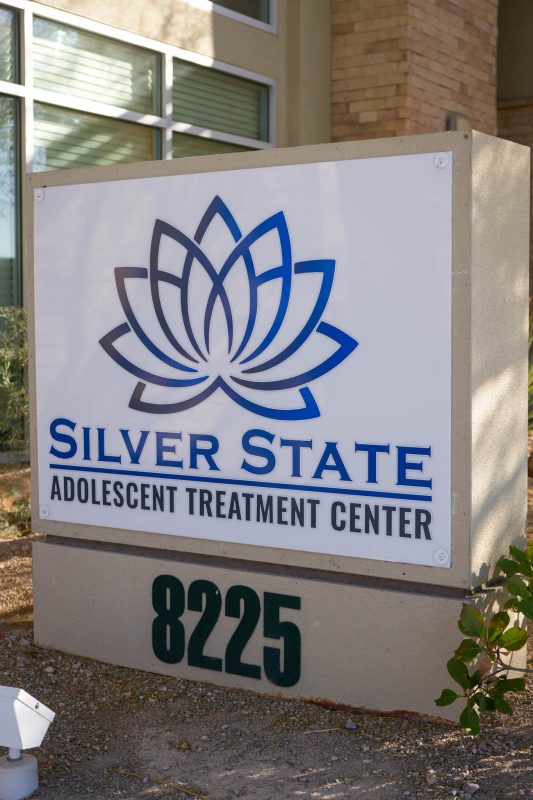Teen Dialectical Behavior Therapy (DBT) in Residential Mental Health Treatment
What We Do

Behavioral Therapy

Trauma-Informed Care

Holistic Treatment Therapy
DBT in Teen Residential Mental Health Treatment
Teens with severe emotional dysregulation often feel stuck in a loop of extreme mood swings, impulsive choices, and damaged relationships. They may struggle with self-harm, suicidal ideation, or intense fear of abandonment—and they may not know how to stop.
DBT was created for exactly these situations.
At Silver State, Dialectical Behavior Therapy is integrated into our residential program to help teens build skills for real-life situations. DBT isn’t just about talking—it’s about doing. Teens practice what they learn in real time, supported by therapists who understand their struggles and are trained in DBT’s core principles.
Our DBT model helps teens gain control of their thoughts and actions—and develop a more balanced, empowered sense of self.


What Is Dialectical Behavior Therapy (DBT)?
Dialectical Behavior Therapy (DBT) is an evidence-based therapy originally developed for individuals experiencing intense emotions and chronic self-harming behaviors. It blends traditional cognitive-behavioral techniques with mindfulness and emotional acceptance.
In residential treatment, DBT is especially effective for teens dealing with:
Mood instability
Suicidal thoughts or self-injury
Borderline personality traits
PTSD and complex trauma
Anxiety and panic
Depression with emotional dysregulation
Impulsive behaviors (e.g., substance use, unsafe relationships)
DBT focuses on four core skill areas:
Mindfulness – staying grounded in the present moment
Distress Tolerance – handling emotional pain without making it worse
Emotion Regulation – identifying and managing emotional responses
Interpersonal Effectiveness – communicating clearly and maintaining boundaries
Signs Your Teen May Benefit from DBT
Teens who struggle with intense, unpredictable emotions often feel like they’re on a rollercoaster they can’t escape. They may act out in ways that hurt themselves or others—then feel ashamed or confused afterward.
Signs that DBT may be helpful include:
Frequent mood swings or outbursts
Self-injury or suicidal ideation
Trouble with boundaries or relationships
Feelings of emptiness or identity confusion
Impulsive decisions (risky behavior, substance use)
Difficulty calming down after conflict
Intense fear of rejection or abandonment
Emotional exhaustion and low self-esteem
In our residential setting, DBT helps teens interrupt these cycles, learn new behaviors, and practice them with 24/7 support.


How DBT Works at Silver State
At Silver State, DBT isn’t just a therapy session—it’s a treatment framework woven throughout each teen’s day. We follow a modified DBT model tailored specifically for adolescents in residential care.
Each DBT treatment plan may include:
Weekly individual DBT sessions with a trained therapist
Daily DBT-informed skills groups
Skills coaching in real-life situations (e.g., during conflict or high stress)
Family DBT education to support consistency at home
Journaling, mindfulness, and self-monitoring exercises
Progress tracking and weekly goals
Therapists work closely with teens to help them internalize the DBT skill set—so they can use it not just during treatment, but long after they leave.
The Silver State Adolescent Approach
We understand that teens dealing with emotional dysregulation often feel misunderstood, rejected, or unsafe. At Silver State, our DBT-informed residential program is designed to offer the structure and consistency teens need—with the warmth and compassion they deserve.
Our goal is not just to reduce crisis moments—but to teach teens how to build a life they feel is worth living.
We don’t expect perfection. We support progress, step by step, with a team that knows how to walk alongside teens who are learning to manage emotions, relationships, and self-worth for the very first time.
Healing starts when teens feel safe, understood, and empowered to change—and that’s exactly what we provide.
Contact Silver State Adolescent Treatment
Please fill out the form to get started and someone from our admissions team will be reaching out to you shortly.

Silver State Adolescent's Therapy Programs
FAQs About Teen Dialectical Behavior Therapy Treatment
DBT is a therapeutic approach that teaches teens how to manage intense emotions, improve relationships, and reduce harmful behaviors.
While both are evidence-based, DBT focuses more on emotional regulation, mindfulness, and managing interpersonal conflict.
DBT helps teens who feel overwhelmed by emotions or act impulsively learn healthier ways to cope and communicate.
“Dialectical” means balancing two opposites: acceptance and change. DBT helps teens accept their experience while working to improve it.
If your teen struggles with emotion dysregulation, self-harm, mood swings, or conflict, DBT can be highly effective.
No. We adapt DBT language and activities to be age-appropriate and easy to understand.
Many teens are skeptical at first but grow to appreciate the results of using the skills.
Not unless they're ready. DBT focuses on stability and safety first.
No. DBT teaches teens to recognize, accept, and manage emotions in healthier ways.
Yes. Teens learn time management, stress reduction, and emotional resilience—all helpful in academic life.
Get Started
At Silver State Adolescent Treatment, we understand how important your questions and concerns are. For immediate assistance or detailed inquiries, please fill out our contact form so our team can respond quickly.
Our compassionate staff is here to provide personalized support tailored to your teen’s needs.
You can also reach us directly using the contact information below. Together, we’ll take the first steps toward your teen’s mental health and recovery.








